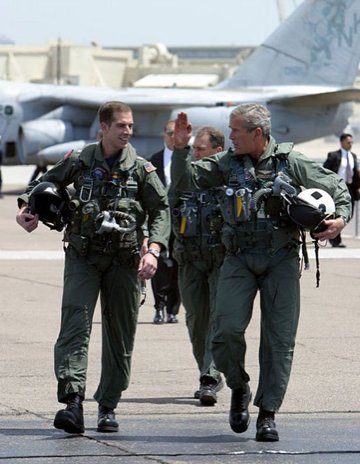Salon has a sort of interesting piece today on documents from the Coalition Provisional Authority (our original occupation government in Iraq, starring L. Paul “Jerry, here’s your Medal of Freedom” Bremer). A Case Western Reserve political scientist discovered some weekly reports from 2004 that still contain all the official edits and deletions. The Salon story cites one remarkable passage: in retrospect, an extended piece of wishful thinking about the insurgency cooling off in al Anbar Province. The CPA appears to have deleted the rosy speculation immediately after insurgents, mobs, or whoever it was killed four U.S. paramilitary contractors in Fallujah, an event that signaled the fact the province was entirely out of government control.
Reading about Iraq in the good old days made me curious about what the current voice of the United States in Baghdad — our embassy — has to say about the state of the nation. Its site includes a link for U.S. Citizen Services, which in turn contains a link labeled Iraq Travel Warning. There’s been a lot of talk coming out of the president’s bunker lately about how the media is exaggerating how bad things are in Iraq and that the good news stories aren’t adequately told. Interesting to read what his people on the ground, the people who actually have to wear flak jackets when they’re in the “Green Zone” and deal with fellow citizens who might wander into trouble, have to say about the situation:
“The Department of State continues to strongly warn U.S. citizens against travel to Iraq, which remains very dangerous. Remnants of the former Ba’ath regime, transnational terrorists, criminal elements and numerous insurgent groups remain active. Attacks against military and civilian targets throughout Iraq continue, including in the International (or “Green”) Zone. Targets include convoys en-route to venues, hotels, restaurants, police stations, checkpoints, foreign diplomatic missions, international organizations and other locations with expatriate personnel. These attacks have resulted in deaths and injuries of American citizens, including those doing humanitarian work. In addition, there have been planned and random killings, as well as extortions and kidnappings. U.S. citizens have been kidnapped and several were subsequently murdered by terrorists in Iraq. U.S. citizens and other foreigners continue to be targeted by insurgent groups and opportunistic criminals for kidnapping and murder. Military operations continue. There are daily attacks against Multinational Forces – Iraq (MNF-I), Iraqi Security Forces and Iraqi Police throughout the country.The Department of State continues to strongly warn U.S. citizens against travel to Iraq, which remains very dangerous. Remnants of the former Ba’ath regime, transnational terrorists, criminal elements and numerous insurgent groups remain active. Attacks against military and civilian targets throughout Iraq continue, including in the International (or “Green”) Zone. Targets include convoys en-route to venues, hotels, restaurants, police stations, checkpoints, foreign diplomatic missions, international organizations and other locations with expatriate personnel. These attacks have resulted in deaths and injuries of American citizens, including those doing humanitarian work. In addition, there have been planned and random killings, as well as extortions and kidnappings. U.S. citizens have been kidnapped and several were subsequently murdered by terrorists in Iraq. U.S. citizens and other foreigners continue to be targeted by insurgent groups and opportunistic criminals for kidnapping and murder. Military operations continue. There are daily attacks against Multinational Forces – Iraq (MNF-I), Iraqi Security Forces and Iraqi Police throughout the country.”
Of course, the embassy might be ignoring all the good news, too.
Technorati Tags: iraq

